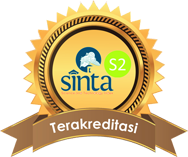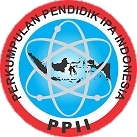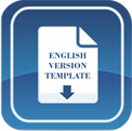PERFORMANCE AND PEER ASSESSMENT ANALYSIS TOWARDS STUDENTS’ SCIENTIFIC WORK THROUGH STEM-BASED VIRTUAL LABORATORY LEARNING
DOI:
https://doi.org/10.15575/jtk.v5i2.9858Keywords:
peer assessment, performance assessment, scientific work, STEM, virtual laboratoryAbstract
This study aimed to analyze the application of performance and peer assessment to students' scientific work through a STEM-based virtual laboratory learning. The research design was used the One Group Pretest-Posttest and One-Shot Case Study. The research was carried out from July to September 2020 at Chemistry Education Department, one of the universities in Indonesia. The research subjects were chemistry education students for the 2018/2019 Academic Year with a purposive sampling technique. The research data was taken from the performance assessment observation sheet given before and after the laboratory practice learning process and the peer assessment questionnaire. The data listed on the observation sheet and questionnaire are then calculated for the percentage. Based on research results, it can be concluded that the implementation of performance and peer assessment of students' scientific work through STEM-based virtual laboratory learning are very competent criteria at 86% and competent at 84%. The results of the paired sample t-test of students' scientific work abilities assessed using the performance assessment have a Sig. (2- tailed) the value below 0.05, which is 0.000, where there is a difference in the average results of initial and final observations using performance assessment through STEM-based virtual laboratory learning. One sample t-test of students' scientific work abilities assessed using performance and peer assessment has Sig. (2- tailed) values of 0.011 and 0.002 indicate that the mean score of students’ scientific work is 75.
References
Adam, S. (2015). Pemanfaatan Media Pembelajaran Berbasis Teknologi Informasi bagi Siswa Kelas X SMA Ananda Batam. Computer Based Information System Journal, 3(2). Retrieved from http://113.212.163.133/ index.php/cbis/article/view/400
Anshari, H., Kusairi, S., & Sugiyanto. (2014). Pengembangan Model Penilaian Peer-Self Assessment Termoderasi Guru Berbasis Web untuk Pelajaran Fisika SMA. Jurnal Mahasiswa dan Dosen Fisika, 3(1), 1-2. Retrieved from http://jurnal-online.um.ac.id/article/do/detail-article/ 1/35/1935
August, S. E., Neyer, A., Murphy, D. B., Themes, R. Q., Hammer, M., Shoktgozar, D., & Vales, J. (2011). Engaging Student in STEM Education through a Virtual Learning Lab. Conference American Society Engineering Education (ASEE). 10.18260/1-2--17854
Fraenkel, J. R., Wallen, N. E., & Hyun, H. H. (2011). How to Design and Evaluate research in Education 8th Ed. New York: McGraw-Hill.
Hartina, L., Rosidin, U., & Suyatna, A. (2020). Pengaruh Penerapan Instrumen Performance Assessment pada Pembelajaran IPA Berbasis Laboratorium Real terhadap Hasil Belajar Siswa. Jurnal Penelitian Pendidikan IPA (JPPIPA), 6(1), 25-31. 10.29303/jppipa.v6i1.299
Hidayat, A. (2018). Meta Analisis: Pentingnya Self dan Peer Assesment dalam Pembelajaran. Jurnal Basicedu, 2(1), 95-101.https://doi.org/10.31004/basicedu.v2i1.127
Jaya, H. (2012). Pengembangan Laboratorium Virtual untuk Kegiatan Praktikum dan Memfasilitasi Pendidikan Karakter di SMK. Jurnal Pendidikan Vokasi, 2(1), 81-90.https://doi.org/10.21831/jpv.v2i1.1019
Kollar, I., & Fischer, F. (2010). Peer Assessment as Collaborative Learning: A Cognitive Perspective. Learning and Instruction, 20(4), 344-348. https://doi.org/10.1016/ j.learninstruc.2009.08.005
Munandar, U. (2009). Pengembangan Kreativitas Anak Berbakat. Jakarta: Rineka Cipta.
Muslich, K. M. (2014). Pengembangan Model Assessment Afektif Berbasis Self Assessment dan Peer Assessment di SMA Negeri 1 Kebomas. Jurnal Kebijakan dan Pengembangan Pendidikan, 2(2). https://doi.org/ 10.22219/jkpp.v2i2.1912
Nomleni, F. T., & Manu, T. S. N. (2018). Pengembangan Media Audio Visual dan Alat Peraga dalam Meningkatkan Pemahaman Konsep dan Pemecahan Masalah. Scholaria: Jurnal Pendidikan dan Kebudayaan, 8(3), 219-230. https://doi.org/10.24246/j.js.2018.v8.i3.p219-230
Purwanto. (2016). Evaluasi Hasil Belajar. Yogyakarta: Pustaka Pelajar.
Putri, M. R. A., Rosidin, U., & Wahyudi, I. (2016). Perbandingan Hasil Belajar Sains Menggunakan Performance Assessment Bebasis Scientific Approach dengan Performance Assessment Konvensional. Jurnal Pembelajaran Fisika, 4, 78. Retrieved from http:// jurnal.fkip.unila.ac.id/index.php/JPF/article/view/10768
Rochmiyati. (2013). Peer Assessment Model on Collaborative Elaboration Learning for Interdisciplinary Social Studies in The Junior High Schools. Jurnal Penelitian dan Evaluasi Pendidikan, 2, 333-346. https://doi.org/10.21831/pep.v17i2.1704
Sabekti, A. W., & Adriani, N. (2019). Pemanfaatan Teknologi Android dalam Pembelajaran Kimia untuk Meningkatkan Daya Saing Bangsa. Talenta Conference Series: Science and Technology, 2(2). https://doi.org/ 10.32734/st.v2i2.516
Sarah, & Padmaningrum, R. T. (2018). Pengaruh Penerapan Virtual Laboratory Terhadap Kemampuan Investigasi dan Prestasi Belajar Peserta Didik. Jurnal Pembelajaran Kimia, 7(5), 184-192. Retrieved from http:// journal.student.uny.ac.id/ojs/index.php/pkimia/article/view/13379
Sari, E. S., & Pujiono, S. (2017). Budaya Literasi di Kalangan Mahasiswa FBS UNY. Jurnal Litera, 16(1). https://doi.org/ 10.21831/ltr.v16i1.14254
Singh, U., & Mishra, P. (2014). Study of Scientific Attitude of B.ED. and B.ED. (Special) Pupil Teachers. Scholarly Research Journal for Interdisciplinary Studies, 2(13), 1815-1822. Retrieved from http://oaji.net/articles/2014/1174-1411723581.pdf
Suryaningsih, Y. (2017). Pembelajaran Berbasis Praktikum Sebagai Sarana Siswa untuk Berlatih Menerapkan Keterampilan Proses Sains dalam Materi Biologi. Jurnal Bio Education, 2(2), 49-57. http://dx.doi.org/10.31949/be.v2i2.759
Thomas, G., Martin, D., & Pleasants, K. (2011). Using Self- and Peer-Assessment to Enhance Students’ Future-Learning in Higher Education. Journal of University Teaching & Learning Practice, 8(1), 1- 16. Retrieved from https:// eric.ed.gov/?id=EJ940101
Yuniarti, F., Dewi, P., & Susanti, R. (2012). Pengembangan Virtual Laboratory Sebagai Media Pembelajaran Berbasis Komputer pada Materi Pembiakan Virus. Unnes Journal of Biology Education, 1 (1),27. https://doi.org/10.15294/ jbe.v1i1.371
Downloads
Published
Issue
Section
License
Authors who publish with this journal agree to the following terms:
- Authors retain copyright and grant the journal right of first publication with the work simultaneously licensed under a  Creative Commons Attribution-ShareAlike that allows others to share the work with an acknowledgement of the work's authorship and initial publication in this journal.
- Authors are able to enter into separate, additional contractual arrangements for the non-exclusive distribution of the journal's published version of the work (e.g., post it to an institutional repository or publish it in a book), with an acknowledgement of its initial publication in this journal.
- Authors are permitted and encouraged to post their work online (e.g., in institutional repositories or on their website) prior to and during the submission process, as it can lead to productive exchanges, as well as earlier and greater citation of published work (See The Effect of Open Access).








